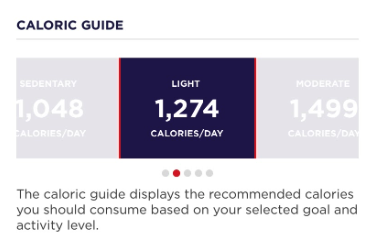The Importance of Individualized Nutrition

We’ve all heard of various diet trends coming out each year, from ketogenic to gluten-free. However, many diets are not only tough to adhere to, but may cut out important essential nutrients that our body needs. Instead of trying out a specific diet, we should be asking ourselves what foods are right for us and how much we should aim to consume each day for essential nutrients.
Factors like age, gender, body composition, activity level, sleep, and stress largely impact our metabolic efficiency. While the core nutritional concepts of eliminating processed foods, fast foods, and refined carbohydrates as much as possible are consistent guidelines for overall health, there are a number of ways in which we can personalize our nutrition to be more specific to our goals.
Why is this important? Well, I’m sure you can imagine that the weekly eating routine of a competitive athlete with a nutritional focus of performance will have a largely different daily caloric intake requirement than someone who may be training for weight loss. Individual nutritional requirements will vary. In order to see substantial change, it’s important to understand not just what types of foods we should be incorporating, but the estimate of our total calories for an optimal energy balance.
Additionally, our nutritional choices over time can impact our gut microbiome and affect how well our body may respond to certain foods, particularly carbohydrates. Specifically, the way our body utilizes carbohydrates and fats for energy varies from individual to individual. When we become more aware of our own personal nutrition daily requirements, we start to build better self-awareness for our food choices and make it easier to stay accountable to a healthy eating routine.
The Importance of Individualizing Calorie Intake During the Challenge
Quality nutrition is a critical component of the F45 Challenge and plays an essential part in creating a healthy lifestyle routine that allows us to reach our goals and sustain them long-term. There are a variety of healthy Challenge recipes to choose from to supplement your weekly training sessions. However, not every food regime will be optimal for everyone, and the key to really stepping up your nutrition game is to personalize your weekly recipes and meal plans for you.
With new science and technology—including wearable technology—nutrition is becoming increasingly personalized, allowing us to monitor our individual progress. Food quality is absolutely critical for establishing a healthy eating routine, however, it’s a good idea to consider what your estimated total daily intake is to establish a baseline before starting the Challenge. By becoming more aware of daily caloric intake, we can become better at recognizing those foods (refined carbs, fast foods) that don’t provide us with any real nutritional value. We also become more aware of food labels, as there are certain foods that may be high in calories but do not provide a great deal of quality nutrition.
Using the Challenge App Tracking System to Determine Total Daily Calories
Optimizing your nutrition to your recommended daily requirements is so important to see long-term changes in body composition. By using the F45 Challenge App tracking system, you can easily determine your recommended daily calorie needs that best fit your weekly activity and body composition. This will help you stay on track with your selected goal, whether it’s to lose weight, maintain weight, or build muscle.
Before starting the F45 Challenge, we recommend utilizing the Tracking System in the F45 Challenge App to determine your recommended total daily calorie intake. First, you’ll need to use the ‘BMR Calculator’ to determine your Basal Metabolic Rate. This is the number of calories your body requires to function at rest, and varies based on a number of factors. It is ultimately used to determine total daily energy expenditure (TDEE), which is your recommended daily calorie intake that takes into account weekly activity level (from sedentary to super active). An important component of the tracking system is selecting your goal, as calorie intake will vary from fat loss and maintenance to muscle gain.

Once you have determined your recommended daily caloric intake (TDEE), you can now modify your weekly meal plan and recipes. The F45 meal plans are set at a base of 1300 for females and 1900 for males. We recommended using the recipe library on the Challenge App or the Calorie Guide to tailor the base meal plans to your given recommendation.
Individualize Calorie Intake During Maintenance
You may also use the Challenge App during the Maintenance Phase to adjust total daily energy requirements. As your weekly training routine may have shifted, it’s always a good idea to go back into the Challenge App tracking system to gauge what your calorie intake should be during Maintenance. For example, if your weekly calorie intake was 1600 calories/day with a goal of fat loss and an activity level of ‘super active,’ this may differ during the Maintenance Phase, where the goal switches to maintenance and an activity level of ‘light.’
Additionally, during the Maintenance Phase, the Challenge base meal plans are set at 1600 for females and 2200 calories for males. Therefore, we highly recommend utilizing the Challenge App tracking system to tailor your caloric needs during Maintenance and adjust your meal plans accordingly to stay on track with your goals.
To download the Challenge App (click here) or for additional information on adjusting calorie intake to your weekly workouts refer to article ‘Adjust Your Calorie Intake Based On Your Workout Regime
References
de Toro-Martín, J., Arsenault, B. J., Després, J. P., & Vohl, M. C. (2017). Precision Nutrition: A Review of Personalized Nutritional Approaches for the Prevention and Management of Metabolic Syndrome. Nutrients, 9(8), 913. https://doi.org/10.3390/nu9080913
